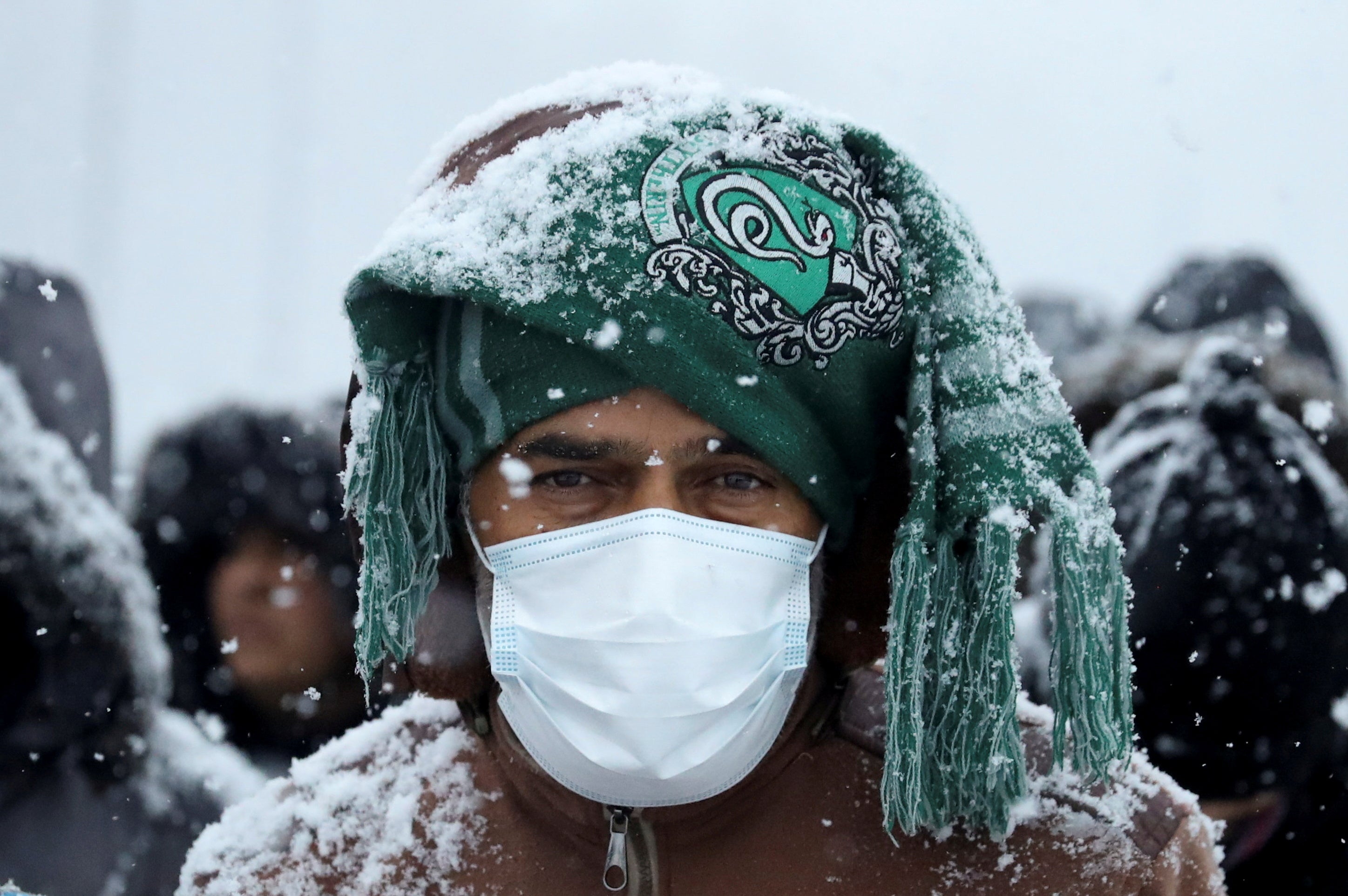Belarus threatens to disrupt EU gas supplies in dispute over migrants
At least 13 people have died in freezing conditions at the Polish-Belarusian border

Your support helps us to tell the story
From reproductive rights to climate change to Big Tech, The Independent is on the ground when the story is developing. Whether it's investigating the financials of Elon Musk's pro-Trump PAC or producing our latest documentary, 'The A Word', which shines a light on the American women fighting for reproductive rights, we know how important it is to parse out the facts from the messaging.
At such a critical moment in US history, we need reporters on the ground. Your donation allows us to keep sending journalists to speak to both sides of the story.
The Independent is trusted by Americans across the entire political spectrum. And unlike many other quality news outlets, we choose not to lock Americans out of our reporting and analysis with paywalls. We believe quality journalism should be available to everyone, paid for by those who can afford it.
Your support makes all the difference.Belarusian president Alexander Lukashenko has threatened to block Russia’s gas supply to the rest of Europe amid a row with the European Union over migrants crossing the border.
Lukashenko said on Wednesday that he was ready to block gas flow from Russia than runs via Belarus, in the fallout from the border crisis.
Russia said that it hoped Belarus would not suspend gas to the EU, arguing that it would “breach” Russia’s “obligations towards European gas buyers”, but defended Mr Lukashenko in the dispute.
Kremlin spokesman Dmitry Peskov said that Belarus was under “unprecedented, unjustified and aggressive” pressure from the EU.
He added that Russian president Vladimir Putin had “expressed his understanding” of Mr Lukashenko’s response.
The EU has accused Belarus of flying in thousands of people from countries in the Middle East with intentions for the migrants to cross into the bloc via Poland, Lithuania, and Latvia.
In response, Poland has threatened to close its border with Belarus, according to Russian news agency RIA on Wednesday.
Polish president Andrzej Duda has approved a new law – to replace a state of emergency from today – that allows the government to limit access to areas around the border.
The EU has now proposed to curtail some rights of migrants at the Polish-Belarusian border, where refugee rights groups have said at least 13 people – including a one-year-old baby – have died while camping in sub-zero temperatures.
The proposal by the European Commission would allow Poland, Latvia, and Lithuania to require migrants to claim asylum only at designated locations, such as certain border crossings, for the next six months.
Asylum seekers could be kept for up to 16 weeks at the border, losing a standing right to be held in more suitable centres inside the country, and EU states would be required to offer them basic provisions only as their cases are decided.
Erin McKay, Oxfam charity’s European migration manager, said the plan “puts politics over peoples’ lives”.
Poland has also used new powers to extend a ban on media and rights activists operating freely in the border area for three months.
The three EU countries have defended their push-back of migrants without assessing individual cases or granting them a proper chance to claim asylum as guaranteed under international humanitarian law.
Ylva Johansson, the EU’s home affairs commissioner, said around 8,000 migrants are in the three border countries.
Germany has reported that about 10,000 people had arrived in the country by first crossing the Belarusian border, while the Belarusian government said there were 10,000 migrants in Belarus.
Ms Johansson said the crisis appeared to have subsided in recent weeks, with Belarus sending 1,900 migrants back to Iraq and moving others back from the border.
She said: “Even though the situation is de-escalating, we have to stay vigilant. The numbers are not high.
“This is not primarily a migration crisis. This is a hybrid threat.”
The EU has been tightening immigration rules since 1.3 million people sought asylum in its member nations in 2015, according to a report by Pew Research Centre.
This figure is nearly double the previous high of about 700,000 people in 1992 following the collapse of the Soviet Union, it adds.
Subscribe to Independent Premium to bookmark this article
Want to bookmark your favourite articles and stories to read or reference later? Start your Independent Premium subscription today.
Join our commenting forum
Join thought-provoking conversations, follow other Independent readers and see their replies
Comments